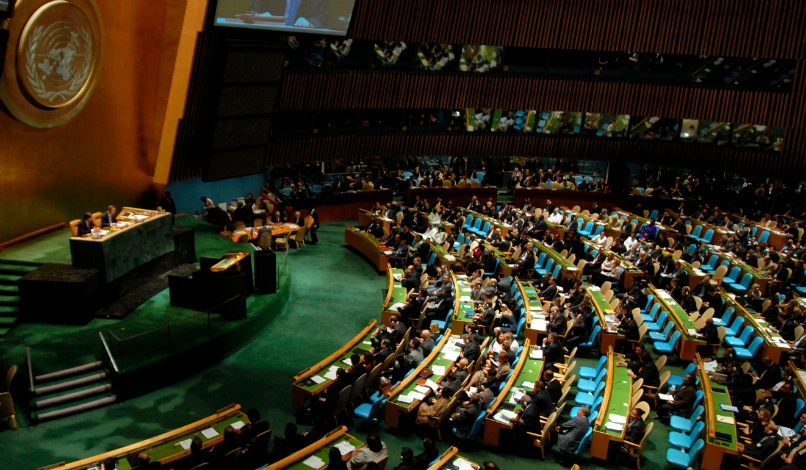 Europe Reasserts Multilateralism: France Calls for Global Leadership on Key Issues
Europe Reasserts Multilateralism: France Calls for Global Leadership on Key Issues
Published on June 11, 2025 | By Today International News
Paris, France – French Foreign Minister Jean‑Noël Barrot delivered a powerful message this week, urging Europe to reclaim its leadership role in addressing critical global challenges. Speaking at a major international forum, Barrot emphasized the importance of multilateralism—a cooperative approach where nations work together through international institutions—to tackle pressing issues such as ocean protection, United Nations reform, and ongoing conflicts in the Middle East and Eastern Europe.
A Call for Strong European Leadership
Barrot’s speech highlights a renewed European ambition to step out from the shadows of geopolitical uncertainty and act as a decisive player on the world stage. “Europe must take the lead in building a more stable, just, and sustainable global order,” he said. His call comes at a time when multilateral cooperation faces significant hurdles amid rising nationalism and fragmented alliances.
Ocean Protection and the Deep-Sea Mining Moratorium
One of the most urgent issues Barrot raised was the protection of the world’s oceans. He stressed that the ecological health of the seas is vital not only for marine life but also for global climate stability and human livelihoods. Barrot urged the international community to support a moratorium on deep-sea mining, a controversial practice that involves extracting minerals from the ocean floor.
“Deep-sea mining threatens fragile ecosystems that we barely understand,” Barrot warned. He called on Europe to set an example by backing international agreements that halt deep-sea mining activities until comprehensive environmental assessments are completed.
This stance reflects growing concerns within scientific and environmental circles about the irreversible damage mining could cause to deep-ocean biodiversity. The European Union has already been vocal about its commitment to sustainability, and Barrot’s remarks reinforce the EU’s goal to lead global efforts in environmental protection.
Reforming the United Nations Security Council
Barrot also addressed the urgent need for reforming the United Nations Security Council (UNSC), which has been criticized for its outdated structure and inability to effectively respond to contemporary global conflicts. Currently dominated by five permanent members with veto power—China, France, Russia, the United Kingdom, and the United States—the UNSC is often seen as unrepresentative of today’s multipolar world.
“The Security Council must evolve to reflect new geopolitical realities,” Barrot insisted. He proposed expanding membership to include emerging powers and improving decision-making mechanisms to ensure faster and fairer responses to crises.
This reform is essential for enhancing the credibility and legitimacy of the UN, enabling it to act decisively on issues ranging from peacekeeping to humanitarian intervention.
Support for a Gaza Ceasefire
Barrot took a strong diplomatic stance on the Middle East conflict, expressing support for a ceasefire in Gaza amid escalating violence. He emphasized the urgent need for humanitarian relief and the importance of dialogue to resolve the underlying issues.
“Europe advocates for a ceasefire that paves the way for lasting peace and reconstruction,” he said. Barrot urged all parties to respect international humanitarian law and ensure safe access for aid organizations.
This call aligns with the EU’s broader approach to conflict resolution—combining diplomacy, aid, and partnership to foster stability in volatile regions.
Continued Pressure on Russia Over Ukraine
In addition to Middle East concerns, Barrot reaffirmed Europe’s commitment to supporting Ukraine in its ongoing conflict with Russia. He stressed that sustained diplomatic and economic pressure on Russia is crucial to upholding international law and territorial sovereignty.
“Europe stands united with Ukraine in defending democracy and peace,” Barrot declared. He highlighted recent EU sanctions and support packages as evidence of this unwavering backing.
The conflict in Ukraine remains a defining challenge for European foreign policy, and Barrot’s remarks signal France’s determination to maintain a firm stance while exploring diplomatic solutions.
Europe’s Role in a Fragmented World
Barrot’s comprehensive address signals a strategic vision for Europe: to move beyond reactive diplomacy and assert itself as a proactive, values-driven leader on the global stage. With issues ranging from environmental protection to peace and institutional reform, the French Foreign Minister’s speech lays out a roadmap for multilateral engagement.
At a time when global cooperation is tested by complex crises and divergent interests, Europe’s reassertion of multilateralism could help bridge divides and foster sustainable solutions.
